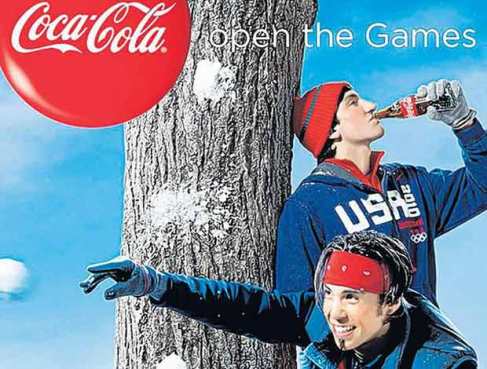The 2014 Winter Olympic Games in Sochi, Russia kicked off last night with an opening ceremony that attracted roughly 31.7 million American viewers, according to deadline.com, and millions more around the globe. Global brands like Coca Cola have sponsored the Games, hoping to take advantage of its massive viewership. A surefire win, right?
Wrong. The LGBT community is critical of this year’s Olympic sponsors, viewing the decision as quasi-supportive of Russia’s law banning “propaganda of nontraditional sexual relations,” and the country’s overall lack of support for gay rights. In August, the Human Rights Campaign (HRC) demanded that Olympic sponsors like Coke use their resources and brand power to “build awareness and demonstrate support for LGBT equality in Russia and globally.” I would argue that it is vital for Coke’s global reputation to take HRC’s advice.
Thankfully, the brand is off to a good start. It addressed the matter quickly by issuing a statement in August (updated in December) in response to HRC’s aforementioned demands, defending its sponsorship of the games and reaffirming its support for the LGBT community. The brand took another step in the right direction last weekend when it aired its Super Bowl ad titled “It’s Beautiful” that featured a gay family, the first Super Bowl ad in history to do so. Coke also used the ad to launch its #AmericaIsBeautiful social campaign that highlights and champions the nation’s diversity.
While these are positive steps, tactics alone simply aren’t enough. Now that the games have begun, Coke is under a spotlight and must continue to show its support for the LGBT community with bold communication moves. To the communications team at Coke: If you’re listening, I have a couple of suggestions for you:
– Partner with Brian Boitano and Billie Jean King, the two openly gay American sports legends chosen to accompany Team USA at last night’s opening ceremony. This partnership would tie in brilliantly with the brand’s #AmericaIsBeautiful campaign.
– Release special-edition cans featuring the rainbow gay pride flag to show its support for the LGBT community, and donate a portion of the proceeds to a prominent activist organization like HRC.
Sure, these tactics would come at a cost. But I’d argue that the cost of alienating the global gay community has a much higher price tag.
Situations like this serve as evidence that corporate sponsorships must be carefully thought through in today’s world. Members of gen-y like myself are attuned to issues of social justice, and the new media landscape provides the public with a platform to voice their distaste and criticize brands decisions. The lesson here? Brands win when they do the right thing. So do the right thing, brands.

Great post Austin! Companies are now realizing how important it is to include the LGBQT community when planning their marketing efforts. The suggestions you have for Coke are strong and I am sure if they implemented it they would be successful. The special edition cans would be a huge hit in my eyes and something that people would embrace and collect. The LGBQT community has one of the highest disposable incomes of any target demographic which is a huge reason why so many companies have started to support them as well as for the reason it is fundamental human rights issue facing our nation today.